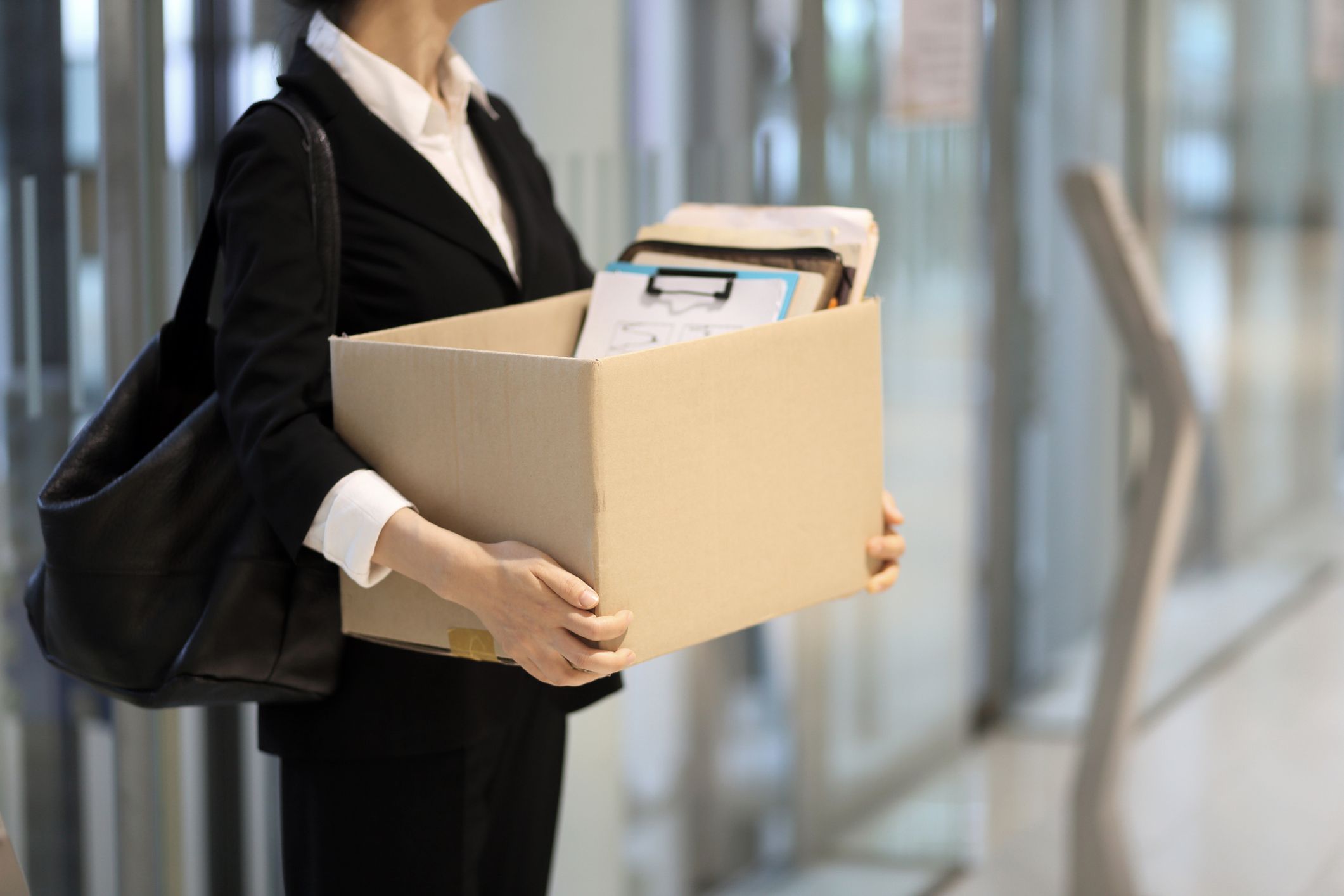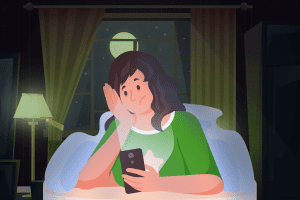6 Ways to Deal with Getting Laid Off

6 Ways to Deal with Getting Laid Off
Table of Contents
ToggleOur jobs serve a lot of purposes to us. For one, it provides us with a sense of purpose and belonging. Even if you don’t like your job, it offers you a social outlet as well as a structure and meaning to your life. So, losing one’s job will predictably take a heavy toll on one’s mood, relationships as well as overall mental and physical wellbeing.
Quitting, being laid off or retiring can bring about different feelings, which may be challenging to deal with. You might feel depressed, hopeless, scared, angry or you might be in denial. Losing your job may leave you questioning your identity or with no sense of security.
The stress can be overwhelming, however, with the right coping strategies and course of action, you can begin to accept your current situation and deal with it effectively until you get back on your feet.
Being laid off is a tough situation, however, most of us have been there and there are some steps you can take to make this time a little easier for you:
1. Give yourself some time.
If your company gave you a month or two notice, you might find it difficult to work as efficiently as you used to. You might find yourself having more “bad days.” You might also be in a hurry to find another job or apply to many positions. Just remember that you need to give yourself time to recover from, process, and even grieve the job loss. Give yourself permission to feel whatever emotion you might be feeling. Whatever you’re feeling, it’s valid. Don’t try to suppress or deny your feelings. Some of the feelings you might experience include shock and denial, anger, withdrawal and depression. However, eventually, you will reach acceptance, where you will come to terms with what happened and be able to effectively plan your actions moving on.
2. Manage your finances.
An obvious shortcoming of a job loss is the loss of one’s income. For some, it might be an inconvenience and for others, it may represent a huge issue that needs to be resolved immediately.
Steps you can take:
- Consider how to spend your savings wisely.
- Make a budget.
- Get financial advice from someone who is experienced.
- Explore other options to generate income (e.g., freelance digital jobs)
3. Focus on self-care.
Losing a job might feel threatening if it does not go according to the career plan you set out for yourself. The loss of routine and structure will also result in having a lot of unstructured free time, which may result in difficult emotions. This can take a toll on you emotionally and physically. Take it easy on yourself during this time. Some steps you can take to take care of your mental and physical health include:
- Exercising regularly (the endorphins will enhance your mood).
- Volunteering or supporting a cause (this will help you maintain a sense of purpose).
- Spending some time in nature (acts as a stress-reliever).
- Writing about your feelings.
- Taking up a hobby you haven’t had the time for before.
- Taking a course you’re interested in or a course that will give you an edge in your field of work.
- Getting plenty of sleep.
- Practicing relaxation techniques (e.g., breathing exercises, paired muscle relaxation, meditation and yoga).
- Developing a new routine.
- Reaching out to your loved ones for emotional support.
- Reaching out to your professional networks for advice.
If you’re experiencing a lot of overwhelming feelings and self-defeating thoughts, it’s a good idea to ask for help and visit a mental health professional.
4. Talk to your immediate family.
Your job loss might not affect you solely, but also your spouse and your children. They might be feeling stressed, worried, or uncertain.
This transition can be easier if:
- You talk openly to your family members about losing your job and the way it’s affecting you psychologically, financially, or even physically.
- Encourage family members to share their own feelings.
- Communicate to your family members about how you would like to be supported and what kind of help you need.
- Explain how this incident will affect your children (if they are old enough) and encourage them to share their fears and worries.
- Set aside some quality time with your family to have some fun and forget about your unemployment issues.
5. Challenge your negative thoughts.
If you catch yourself having thoughts such as “I’m a failure” or “I’ll never get a good job like this one ever again” or “No one will ever reply to my applications,” try challenging these thoughts. Explore the thought and ask yourself “What is the evidence that supports this thought?” Ask yourself “What is the likelihood of this actually happening?” or “What would a friend tell me about this thought?” And finally, “What would be a more helpful and accurate way of thinking?”
6. Focus on what you can control.
While you cannot control when your potential employer will email you back, you can control developing yourself professionally. You can invest this time in learning new skills, taking courses, setting up a meeting with one of your networks, or writing an impressive cover letter and resume.
References:
- alis. (2022, March 17). How to cope with job loss – alis. Government of Alberta. Retrieved July 24, 2022, from https://alis.alberta.ca/look-for-work/job-loss-creating-a-new-future/how-to-cope-with-job-loss/
- Melinda. (2022, March 24). Job loss and unemployment stress. HelpGuide.org. Retrieved July 25, 2022, from https://www.helpguide.org/articles/stress/job-loss-and-unemployment-stress.htm
- “Trauma- and Stressor-Related Disorders.” In Diagnostic and Statistical Manual of Mental Disorders. DSM Library. American Psychiatric Association, 2013. https://doi.org/10.1176/appi.books.9780890425596.dsm07
- Linn, M W, R Sandifer, and S Stein. “Effects of Unemployment on Mental and Physical Health.” American Journal of Public Health 75, no. 5 (May 1985): 502–6. https://www.ncbi.nlm.nih.gov/pmc/articles/PMC1646287/
- Navarro-Abal, Yolanda, José Antonio Climent-Rodríguez, María José López-López, and Juan Gómez-Salgado. “Psychological Coping with Job Loss. Empirical Study to Contribute to the Development of Unemployed People.” International Journal of Environmental Research and Public Health 15, no. 8 (August 2018): 1787. https://doi.org/10.3390/ijerph15081787
- Rafi, Md. Abdur, Mohammed A. Mamun, Kamrul Hsan, Moazzem Hossain, and David Gozal. “Psychological Implications of Unemployment Among Bangladesh Civil Service Job Seekers: A Pilot Study.” Frontiers in Psychiatry 10 (2019): 578. https://doi.org/10.3389/fpsyt.2019.00578
- Posel, Dorrit, Adeola Oyenubi, and Umakrishnan Kollamparambil. “Job Loss and Mental Health during the COVID-19 Lockdown: Evidence from South Africa.” PLOS ONE 16, no. 3 (March 30, 2021): e0249352. https://doi.org/10.1371/journal.pone.0249352
- Farré, Lídia, Francesco Fasani, and Hannes Mueller. “Feeling Useless: The Effect of Unemployment on Mental Health in the Great Recession.” IZA Journal of Labor Economics 7, no. 1 (September 27, 2018): 8. https://doi.org/10.1186/s40172-018-0068-5
- Toussaint, Loren, Quang Anh Nguyen, Claire Roettger, Kiara Dixon, Martin Offenbächer, Niko Kohls, Jameson Hirsch, and Fuschia Sirois. “Effectiveness of Progressive Muscle Relaxation, Deep Breathing, and Guided Imagery in Promoting Psychological and Physiological States of Relaxation.” Evidence-Based Complementary and Alternative Medicine 2021 (July 3, 2021): e5924040. https://doi.org/10.1155/2021/5924040
- Wang, Xingmin, Lin Cai, Jing Qian, and Jiaxi Peng. “Social Support Moderates Stress Effects on Depression.” International Journal of Mental Health Systems 8, no. 1 (November 13, 2014): 41. https://doi.org/10.1186/1752-4458-8-41
- Blaxton, Jessica M., Cindy S. Bergeman, Brenda R. Whitehead, Marcia E. Braun, and Jessic D. Payne. “Relationships Among Nightly Sleep Quality, Daily Stress, and Daily Affect.” The Journals of Gerontology: Series B 72, no. 3 (May 1, 2017): 363–72. https://doi.org/10.1093/geronb/gbv060
- Saleh, Dalia, Nathalie Camart, Fouad Sbeira, and Lucia Romo. “Can We Learn to Manage Stress? A Randomized Controlled Trial Carried out on University Students.” PLOS ONE 13, no. 9 (September 5, 2018): e0200997. https://doi.org/10.1371/journal.pone.0200997
- Loprinzi, Paul D., and Emily Frith. “Protective and Therapeutic Effects of Exercise on Stress-Induced Memory Impairment.” The Journal of Physiological Sciences: JPS 69, no. 1 (January 2019): 1–12. https://doi.org/10.1007/s12576-018-0638-0
- Salmon, P. “Effects of Physical Exercise on Anxiety, Depression, and Sensitivity to Stress: A Unifying Theory.” Clinical Psychology Review 21, no. 1 (February 2001): 33–61. https://doi.org/10.1016/s0272-7358(99)00032-x






